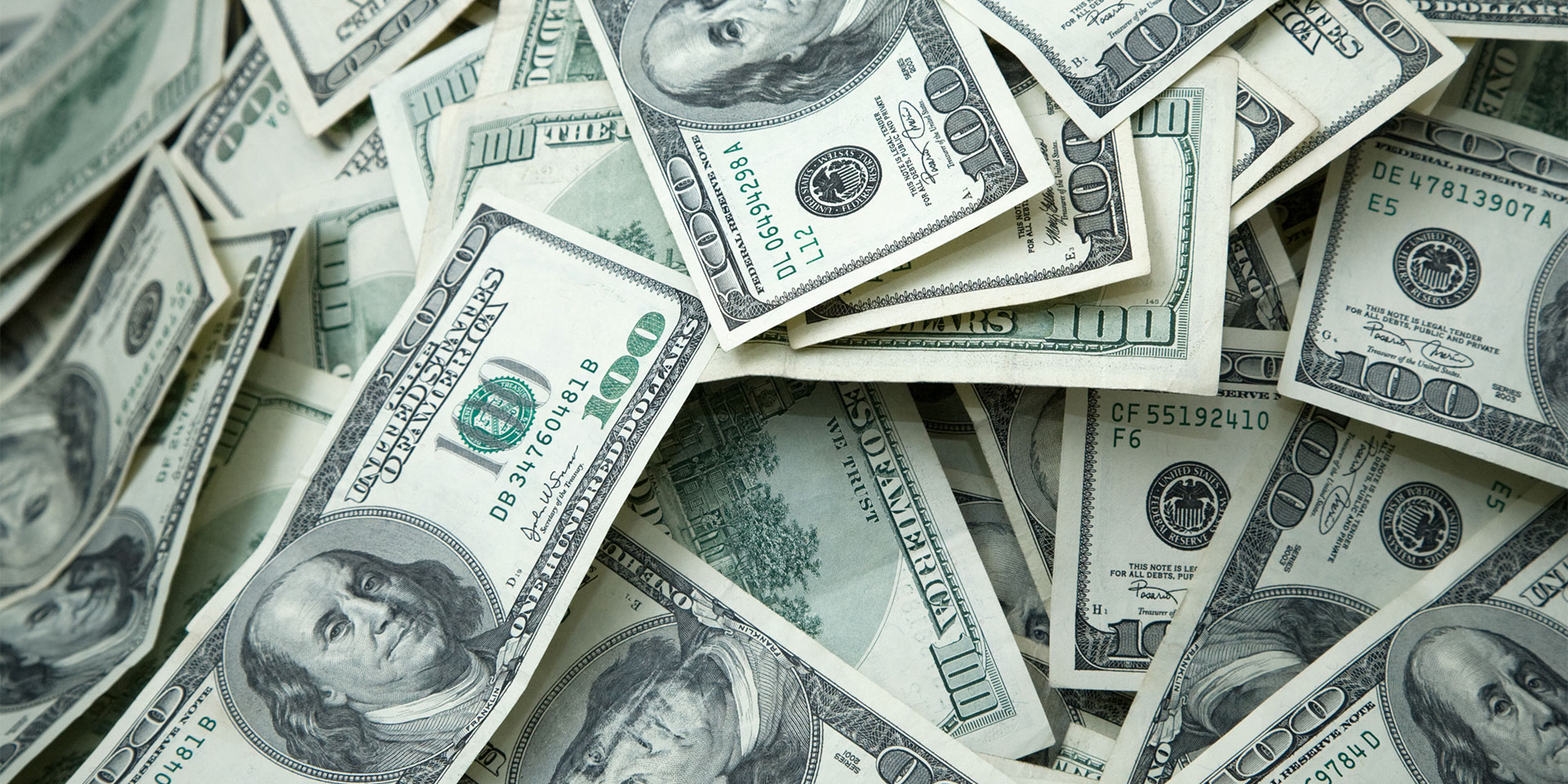If life were merely about money, it would be like a game of Monopoly. At the end of the game, you’d count your cash, add up the value of your assets and find out whether you’d won or lost. Then you’d breathe your last.
Unfortunately, being the richest man in the cemetery is no real accomplishment! Life is about more than money!
“Focusing your life solely on making a buck shows a certain poverty of ambition,” says U.S. president Barack Obama. “It asks too little of yourself. Because it’s only when you hitch your wagon to something larger…that you realise your true potential.”
Money can’t buy happiness
American film actress and model Bo Derek once said, “Whoever said money can’t buy happiness simply didn’t know where to go shopping.” I think she was joking. I hope she was joking.
There are too many stories of sad lives among those with wealth to say that money can buy happiness. The Casey Johnson story is an extremely sad example.
Casey died of severe insulin deficiency in January 2010. Thirty years old, she was found dead in a run-down, rented, West Hollywood house where the gas and electricity had been cut off and rats ran around the empty swimming pool.
Born into a family worth an estimated US$180 billion, she was the great-great- granddaughter of Robert Wood Johnson, the co-founder of the Johnson & Johnson empire.
“I have so much stuff that, you know, it’s almost embarrassing,” she once said. “I got my first Chanel bag at 12, and a $17,000 gold Cartier watch when I was 15.” She referred to her wealth as a “golden handcuff” and complained that there was “nothing left to want.”
She may have had money, but her personal life was a disaster. She was the victim of alcohol and drugs, estranged from her family and plagued by feelings of personal failure.
Casey once said her stupidest mistake was turning down a role on the reality TV show, The Simple Life, with her friend and fellow heiress, Paris Hilton. But it was much more than this that took this billionaire from her home in east-side Manhattan, New York, to the place of her death in West Hollywood, California.
Money does not equal happiness. We know it. We have ample proof of it. Nevertheless, we’re teased by the thought that money would solve an awful lot of our problems and that we’d certainly do better caring for it than those who fail.
But would we?
Money and the “me-factor”
Money can buy stuff. And it can buy some pretty nice stuff. But it’s a mistake to barter the wrong things for money. How sad that, a few years ago, a British girl was willing to offer her virginity on eBay to help pay for her tertiary education. Bidding started at US$10,000. The good part of the story is that the highest bidder paid the money to help her out without collecting the service she offered.
Extreme? Perhaps. But there are too many of us who spend so much time on gaining money that things like family life, character development and dreams suffer. That’s particularly disappointing when, so often, the money is only used to buy stuff.
When we do this, the only people who will thank us are advertisers. They target us. When De Beers, the diamond mining company, discovered that women typically acquired expensive rings only when men bought the jewellery for them, they set their advertisers to work to change the situation.
Exploiting the politics of feminism, they began to sell the concept of the right hand symbolising female freedom. One of their ads reads, “Your left hand says we, your right hand says me.”
These ads marked “the creation of the Me-Ring, as brilliant and expensive as an engagement ring, only symbolising independence, not alliance. It is a token of love from you to yourself.” For a time, upmarket jewellers were selling $5,000 rings faster than they could get them for the “bling fingers.”
Researchers in England gave individuals two scenarios to imagine. The first scenario had them living in a society where the average income was £100,000 and they earned £125,000. In the second they were living in a place where the average income was £200,000, but their income was £175,000.
They were told that there was no difference in the purchasing power of the pound in either case. They were asked which scenario they would prefer to live in. The overwhelming majority chose to live in the £100,000 society, earning £125,000. They would rather the lower amount they had to spend because it would keep them ahead of the pack.
That’s “me first.”
Please don’t think there’s anything intrinsically evil about money. Some people misquote the Bible, saying that money is the root of all evil. But the Bible actually says that the “love of money is a root of all kinds of evil” (1 Timothy 6:10, emphasis added).
In the right hands, money can do a great deal of good. In the wrong hands it can do a lot of evil. In our hands, it’s how we use it. It’s our attitude to money that’s important.
Here’s the danger, according to Clive Hamilton and Richard Denniss, authors of the book Affluenza: “It is not money and material possessions that are the root of the problem: it is our attachment to them and the way they condition our thinking, give us our self-definition and rule our lives.”
The attraction of money is that our bank balance and the stuff we collect is a ready indicator of our achievement and how much we are personally worth. But the ability to collect money and assets is a shallow base for life satisfaction.
Balancing the books
Financial planners have found a secret to help us remember that we become very selfish if our money is all about us, all about me. They suggest that we set aside a certain percentage of our income to give away—to charities and good causes. This stops selfishness. Often, they suggest you make this a tenth of your income and even use the biblical word tithe (the word means “a tenth”) to describe this.
Early in the Bible, we’re told that a tenth of every increase (including crops and animals) belongs to God and should be given back to Him (Leviticus 27:30). This is a reminder that all we have comes from God, and that we are reliant on Him—and that He, not me, is the centre of the Universe.
Later in the Bible we get the strong message that those who do not pay tithe are cheating God. Through the prophet Malachi, God said, “You are under a curse, for your whole nation has been cheating on me” (Malachi 3:9, NLT). What should they do? “Bring all the tithes into the storehouse so there will be enough food in my Temple” (verse 10).
The tithe was given to the descendants of Levi, the priestly tribe who acted as ministers and priests of God and keepers of the temple. They were God’s representatives. They received no land when the Exodus brought the children of Israel to Palestine. Tithing by the other 11 tribes was a practical way of supporting them. The Levites also had to tithe their income (Numbers 18:21–28).
Jesus once spoke to those who were so particular that they would trim a tenth of the plants in their herb gardens as tithe. He affirmed them in doing this, but He went on to warn that they must not forget the bigger things of life. He put tithe (and money) in perspective. Listen, “You should tithe, yes, but do not neglect the more important things [justice, mercy and faith]” (Matthew 23:23, NLT).
Tithing not only helps avoid the “me-factor,” it demonstrates a reliance on God. Further, if my money is not all about me, it frees me up to look for ways I can help others. There are always needs.
Bill Gates, who gave up his job at Microsoft to give time to his philanthropic organisation, makes this comment: “Is the rich world aware of how four billion of the six billion live? If we were aware, we would want to help out, we’d want to get involved.”
He’s involved and discovering the rewards of giving.
A matter of the heart
One of the most-watched films of all time, Titanic, is a story about the love between Jack and Rose. Probably the most memorable scene has them standing on the bow of Titanic, the wind blowing through their hair and tugging at their clothes with a Céline Dion song playing in the background.
The final scene of Titanic has an elderly Rose on the recovery ship over the Titanic. At night, she makes her way to the stern of the ship and takes out of her pocket “The Heart of the Ocean,” a fabulous blue diamond necklace which she has kept since that last fateful night on the Titanic.
She holds it in the soft light momentarily and then quietly drops it into the water. The most valuable thing she owns (and not only because of its financial worth) drifts down to Jack’s resting place. He’s the one she’d loved and lost so many years before. This is where her heart was.
In the Sermon on the Mount, Jesus wisely said, “Wherever your treasure is, there the desires of your heart will also be” (Matthew 6:21, NLT). What is your money saying about where your heart is?
Bruce Manners is a retired Signs of the Times Australia editor, having served in the role from 1989–2003. He lives in Melbourne, Australia. A version of this article first appeared on the Signs of the Times Australia website and is republished with permission.




















